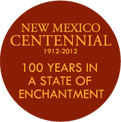« Guest Blog: Reelect Mary Gail Gwaltney as NM's Democratic National Committeewoman | Main | Sierra Club Endorses Tom Udall for Senate on Earth Day 2008 »
Tuesday, April 22, 2008
Guest Blog by Laura Paskus: Reasons for Hope on Earth Day in New Mexico, 2008
 This is a guest blog by Laura Paskus. Laura is a writer living in Albuquerque.
This is a guest blog by Laura Paskus. Laura is a writer living in Albuquerque.
I’ve never been one to skirt an issue. So here it is: New Mexicans have a lot to worry about when it comes to the environment and healthy communities.
That said, there many reasons for hope.
Okay, first, the bad news: Climate scientists predict a drier future for the Southwest; uranium companies are looking to resume mining in the state; a coal-fired power plant is poised for construction on the Navajo reservation; the state may end up being home to a second uranium enrichment facility, as well as a brand-new Plutonium pit factory; and Sen. Domenici thinks bringing even more nuclear waste into the state is a good idea.
Right here in Albuquerque, families in the South Valley live in communities that—thanks to a continuing history of heavy industry—aren’t always safe and healthy; 57,000 acres of a former land grant are slated for residential and/or energy development; and some local lawmakers think it is acceptable—despite knowing what we do about climate change, as well as dwindling water and fossil fuel supplies—to encourage more unsustainable sprawl along the edges of the city.
But now for the good news: There are plenty of national and grassroots environmental organizations here in New Mexico, and many of them are doing amazing work on issues ranging from the restoration of wolves and the protection of endangered butterflies to the conservation of groundwater resources and the environmental education of our children.
There are also those who have made great personal sacrifices to protect New Mexico. Consider Greg and Trish Mello of the Los Alamos Study Group, who have worked tirelessly to educate New Mexicans about issues at the nuclear laboratory to our north. Or Elouise Brown, president of the Navajo resistance organization, Dooda Desert Rock. She’s been working 24-7, she says, organizing opposition to the proposed Desert Rock coal-fired power plant since she was a volunteer for the organization and the president “decided to jump off.” She took over and hasn’t taken a moment’s rest from organizing yet.
Other people who work hard to make Albuquerque a more sustainable community include Monte Skarsgard, who started the community supported agriculture project at Los Poblanos Organics; volunteers with the Ditches With Trails project; and Vince Case, a teacher with the South Valley’s alternative School on Wheels. (By the way, I’m just going to leave it at these few folks, although I keep thinking of more and more names to list.)
There is also a small, but very committed, group of activists and bloggers educating the public about TIDDS, or Tax Increment Development Districts. This isn’t sexy stuff, nor is it easy to explain. It’s a complicated and frustrating issue, and I’m particularly grateful to Gabriel Nims with , Anne Stauffer with New Mexico Voices for Children and Javier Benavidez with for having patiently explained the issue to me recently. (Keep TIDDS on your radar, folks. Particularly once the next legislative session begins.)
I also recently interviewed Bianca Encinas, an organizer with the Southwest Network for Environmental and Economic Justice. One of the things she spoke about was the need for environmental organizations to build relationship with land grant and acequia movements.
“Yes, you can be fighting for your water rights,” she says, “but if you’re water is contaminated…That is impacting the cycle of life, right? So land rights and water rights, those struggles are not separate from environmental justice.”
She also talked about the need for more studies about how toxins affect women, particularly women living in communities of color or low-income communities, where people are more regularly exposed to toxins. “In the past, women fought for the right to have access to abortions and the right to birth control,” she says. “Now, it’s almost like the reproductive movement is teaming up with the environmental justice movement for the right to have a child—a healthy child—and to have the opportunity to breastfeed.”
And while I was interviewing the founder and executive director of the New Mexico Environmental Law Center, Douglas Meiklejohn, he offered some advice for communities facing environmental or health threats.
“The first thing I would say is you can do something,” he said:
“I think a lot of people—although I think this is less true than it used to be— feel, ‘these are forces that are beyond my control and I can’t do anything about them.’ That’s not accurate. You can do something about them. Witness the fact that uranium mining hasn’t begun in Crownpoint and Church Rock. Look at what happened in Sunland Park and Chaparral (where the communities organized against a landfill and a medical incinerator). People can do things. People can organize. And people can have an impact.”
The second thing, he said, is that people must go at a situation “every single way you can”:
In the uranium mining situation, for example, there are about four different arenas in which we are fighting that proposal to mine uranium in Crownpoint and Church Rock….The worst thing that a community can do in terms of taking on one of these fights is to put all of its eggs in one basket, because normally that doesn’t pay off.
And while I don’t presume to have expertise or insight comparable to people such as Meiklejohn, if I could offer one piece of advice, it would be this: Hold servants of the public accountable, but do not put your faith in elected officials.
I realize that is not what people want to hear right now, especially since this is such an important election year in New Mexico. But there is greater reward, I believe, in placing your faith in neighbors and friends, brothers and sisters—and together, working toward a more sustainable future.
Last spring, I listened to the writer Barry Lopez speak in Santa Fe. "If your deepest commitment is to be in power, you are a burden to society," he said.
Love is about commitment, he said, and love needs to be the foundation of government. But what he said next struck me most of all: “It's okay to be in love with the world and to articulate that.”
I think Mr. Lopez has it exactly right: Articulate your love of the world, of your community, of your neighbors. Only then can a sustainable future—for all New Mexicans—become a reality.
This is a guest blog by Laura Paskus. Guest blogs provide our readers with an opportunity to express themselves on issues relevant to the DFNM blog. If you'd like to submit a post for consideration as a guest blog, contact me by clicking on the Email Me link on the upper left-hand corner of the page.
Technorati Tags:Earth Day, Laura Paskus, Albuquerque, New Mexico, climate, uranium mining, coal, plutonium pits, Navajos, Los Alamos Study Group, Dooda Desert Rock, 1000 Friends of New Mexico, TIDD, New Mexico Voices for Children, Conservation Voters New Mexico, Southwest Network for Environmental and Economic Justice, water, New Mexico Environmental Law Center, Los Poblanos Organics, Ditches With Trails, School on Wheels, Barry Lopez
April 22, 2008 at 11:01 AM in Energy, Environment, Guest Blogger | Permalink
Comments
Great post. It's always good to see that the locals who work so hard on this stuff get some recognition.
Posted by: greenie | Apr 22, 2008 12:52:34 PM
Cheers to these hard workers, especially on Earth Day -- but kudos as well to the many environmental researchers at "the nuclear laboratory to our north" who are the ones looking for technical solutions to the frightening impacts of climate change and other risks to our planet. We can call for "more studies" on this and that, but we shouldn't forget who it is that does that hard work for all of us.
https://www.lanl.gov/science/ is not a bad place to start educating oneself.
Posted by: OhGoodGrief | Apr 22, 2008 2:19:24 PM
Excellent write up Laura! You rock!
Posted by: Taoseno | Apr 22, 2008 7:26:32 PM
It will take people working from many angles and on many dimensions of this problem for us to make meaningful headway. All of us need to do our part whether it's with the sort or organizations mentioned in this post or wherever we are. Our national labs can certainly be a big asset in the changes we need to make IF their missions are changed quickly and in a significant way.
Posted by: George P. | Apr 22, 2008 8:03:11 PM














